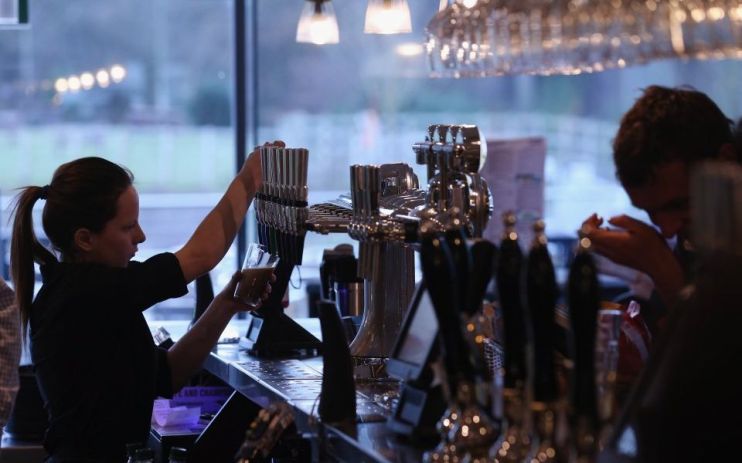Wetherspoons hits out at pub closures following ‘partygate’ scandal

JD Wetherspoon (Wetherspoons) has slammed the government in a fiery trading update, criticising pub closures amid multiple lockdowns over the past two years.
The pub chain highlighted the current ‘partygate’ scandal around the government holding illegal events during the first lockdown to point out the damage caused by the wholesale closure of hospitality.
It said that if Downing Street attendees had instead partied in a Wetherspoons in May 2020, the company’s central London staff could have dealt with the rumoured boozy high-jinks.
Wetherspoons, whose chairman Tim Martin supported Boris Johnson when he ran to be Conservative leader, also highlighted there was the benefit of CCTV at its central London pubs.
This would have unambiguously revealed who had rocked up for some fun and who had not.
The pub chain even noted that prior to the widespread availability of vaccines, Wetherspoons had screens, sanitisers and spaced out seating, unlike No10’s garden.
It argued that infections primarily were attributed to private, household gatherings and that Wetherspoons had registered over 50m customer visits in the second half of 2020, when pubs were finally permitted to reopen, with no outbreaks of the virus among customers.
Wetherspoons also suggested public finances would be in better shape if it had been allowed to open earlier, with the pub chain paying £15m in taxes every week, around one pound in every thousand collected by the government.
Pubs did not open for a further six weeks after the alleged event, so it believes the Treasury lost large sums from Wetherspoon alone – a fraction of the contribution from the hospitality, travel and leisure industries.
Pub chain takes aim at BlackRock and VAT rates amid downturn in sales
The colourful comments directed at the government follow a downturn in trading ahead of the interim results in March, and gloomy predictions about results for the first half of the year.
In the financial year to date (25 weeks to 16 January 2022), like-for-like sales have decreased by 11.7 per cent and total sales by 13.3 per cent, compared to the similar period in financial year 2020.
Sales in the second quarter were affected by the Plan B restrictions announced by the government in December, which dissuaded punters from entering pubs amid the spread of the Omicron variant over Christmas.
In the 12 weeks to 16 January 2022, like-for-like sales decreased by 15.6 per cent and total sales by 16.6 per cent.
Martin said: “As mentioned in our update on 13 December 2021, the uncertainty created by the introduction of plan B Covid-19 measures makes predictions for sales and profits hazardous. The company will be loss-making in the first half of the financial year, but hopes that, with the ending of restrictions, improved customer confidence and better weather, it will have a much stronger performance in the second half.”
The pub chain’s criticism of the government and Covid-19 measures was only one strand of a dramatic submission to the London Stock Exchange, with Wetherspoons also taking aim at BlackRock and VAT rates.
It hammered BlackRock, which owns 3.51 per cent of Wetherspoons’ shares on behalf of clients, for voting against the company’s non-executive directors at the latest AGM for alleged governance issues.
Wetherspoons said: “BlackRock corporate governance executives, at the time of the AGM vote, had never met anyone from Wetherspoon – and there was no advance indication of their voting intention. Nor have BlackRock fund managers, with whom the company has had a positive relationship, queried Wetherspoon’s governance in the years since our 1992 flotation.”
The pub chain also claimed BlackRock’s policies infringe UK corporate governance guidelines, although the asset manager is a US-listed entity and consequently abides by a different regulatory framework.
In the UK, non-executive directors are bound by a nine-year maximum tenure guideline, but this not the same Stateside.
Wetherspoons also called for VAT to be rebalanced after the pandemic, so that pubs no longer pay ten times the level of VAT as supermarkets.
With supermarkets raking in profits, Wetherspoons criticised government plans to maintain VAT at 20 per cent for pubs.
Despite the government temporarily decreasing it during the pandemic, it looks set to maintain supermarkets’ competitive advantage post-pandemic, with supermarkets able to sell alcohol more cheaply with only a two per cent VAT rate.